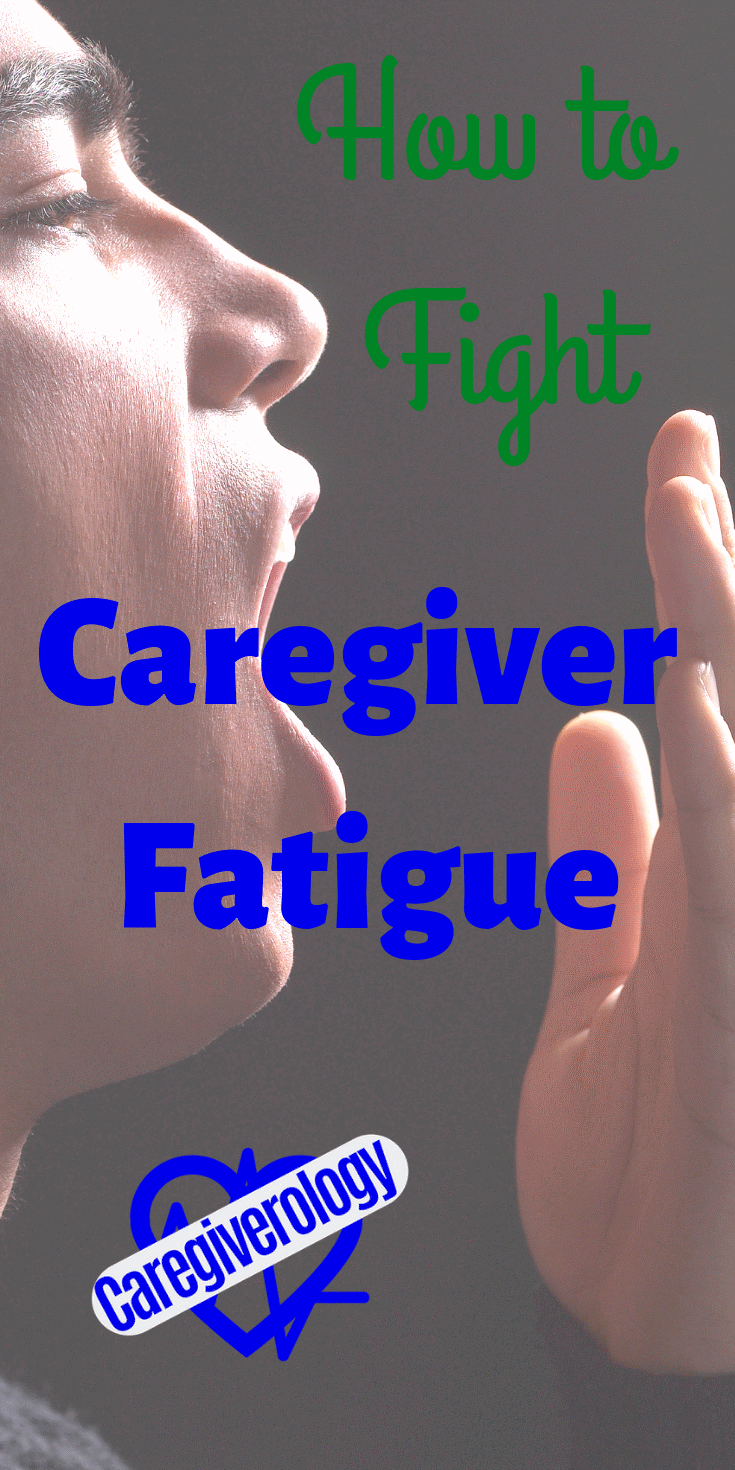How to Fight Caregiver Fatigue
Many caregivers, including myself, suffer from caregiver fatigue. We all get worn out from time to time but it's important to try to minimize how often this happens. If we get tired mentally or physically, it affects the way we care for our patients as well as caregiver communication. This issue can be amplified if you care for a relative at home.

My Schedule
I personally used to work in a hospital as a certified nursing assistant, and currently a registered nurse, for 12 hours or more at a time. For some, that may not be very much but for me, it's definitely long enough. Now as a dialysis nurse, I've worked much longer than this.
I also used to work the night shift which lasts from 7 pm to 7 am. No sleeping on the job neither. Getting caught sleeping is a big no no. It was a little difficult to stay awake at first, but it got easier with time.
I find it funny when one of my patients ask me if they woke me up after calling me on their call light. Many simply ask, "When do you sleep?" I just chuckle and tell them, "When everybody else is awake."
What I Do
How do I do it? First of all I try to get about five to six hours of sleep on my purple mattress, drink coffee once or twice a shift, eat an apple per shift, and take a multivitamin with lots of B12. B12 is a natural energy booster that's found in many vitamins. If you want a boost without unhealthy caffeine, B12 will deliver.
Back when I had EBV or mono as many people call it, I was actually taking B12 injections on a weekly basis. For those who don't know, mono causes extreme fatigue and usually lasts from a few months to a few years. Of course never take these shots unless prescribed by your doctor.
An apple a day will not only keep the doctor away, it will also give you a little boost in energy as well. Don't believe me? An apple actually gives you more energy than a can of soda, and of course, it's better for you.
I have also been drinking fruit smoothies made from a blender called the nutribullet or nutrininja. I blend some kind of leafy greens along with fruit, nuts, and flax seeds. I feel like that has given me a massive energy boost.

Exercise
If possible, a workout routine to stay in shape is always helpful. If you don't have the time or the budget to go to the gym, a simple home workout will work as well. If nothing else, do simple things like a walk around your neighborhood or take the stairs instead of the elevator. A little exercise here and there goes a long way.
Maybe I shouldn't give working out as advice since I currently don't. I actually tried a workout routine and ended up hurting my back for a few days. I injured it for life back in high school and sometimes the pain comes back when I move or lift a certain way. I should try to start it again and just be more careful, but I'm stubborn.
Update: I have been going to the gym for awhile now and I have to say, it has really helped me. It takes up quite a bit of my time but it is definitely worth it. Not only have I been getting stronger, I have felt a lot more awake and alert.
Overtime
Another easy way to prevent caregiver fatigue, don't accept overtime when you shouldn't. If you get called in but you don't feel like you would be awake and alert during your shift, it's best for them to find someone else who will be.
A lot of times, I will get offered during the day to work overtime that night. No matter how bad I need the money, if I haven't gotten a proper amount of sleep to work all night, I'll say no. I always make sure I'm well rested so I don't burn out halfway through my shift.
Do Everything You Can
You may not be able to do all of the things I mentioned. You may be caring for a relative who lives with you in which case you may want to consider purchasing a medical alert device. Maybe you have kids and you can't get a proper amount of sleep or you may not want to drink coffee because it is unhealthy. Maybe you are like me and have a hard time working out because of a previous injury.
Whatever the reasons may be, you should still do everything you can to make sure you are alert while taking care of your patients. If you aren't, not only will you work slower or make more errors, your patients will notice and you will look very unprofessional in their eyes.
Back when I first became a caregiver, I received a complaint that I looked like I had just woken up. This is not something your patients should be saying. There's no telling how many patients said that about me but I just never heard about it. Luckily, I've come a long way since then.
If you are a home caregiver, always ask for your friends and/or relatives to help as needed. Just dealing with all of the emotions themselves can get you down and cause caregiver stress. Take some time to yourself or you may end up with caregiver depression. Avoid this at all costs. It is beyond important to always be a positive caregiver. Here's an in depth look at what to do to overcome a lack of empathy. You may even want to consider a long-term care facility such as a senior living home if your can afford it.
If you don't prevent caregiver fatigue for yourself, do it for everyone else around you. A tired and unproductive worker affects everybody and in return, causes more unnecessary tension and stress. When this happens, many people will take it out on the ones around them. Your coworkers and especially your patients, deserve a fully awake caregiver.
From How to Fight Caregiver Fatigue to Home
Recent Articles
-
Common Truck Crash Injuries and Legal Remedies - Caregiverology
Jul 19, 25 10:49 AM
Known for its sun-drenched beaches, vibrant arts scene, and bustling maritime industry, Fort Lauderdale is a city that sees heavy traffic both on its roads and at its busy port. Unfortunately, with th… -
Why Expert Legal Help Matters After Serious Injury - Caregiverology
Jul 19, 25 10:35 AM
In Houston, over 67,600 car crashes occurred in 2023, resulting in 290 fatalities and 1,612 serious injuries. That’s roughly 185 accidents every day. -
How Life Care Planners Support Injury Recovery - Caregiverology
Jul 19, 25 10:18 AM
In Los Angeles, life care planners play a vital role in supporting injury recovery, especially for individuals facing catastrophic injuries such as traumatic brain injuries or spinal cord damage.





New! Comments
Have something to say about what you just read? Leave a comment in the box below.